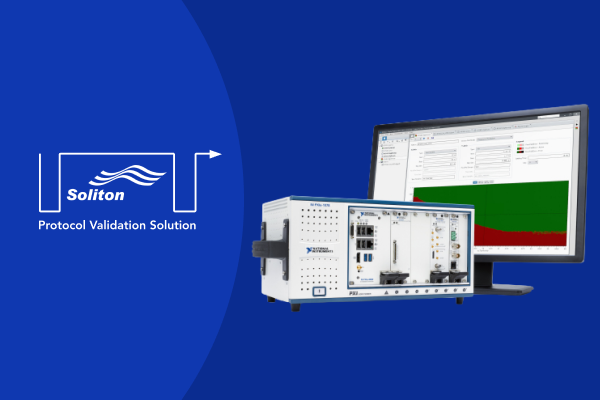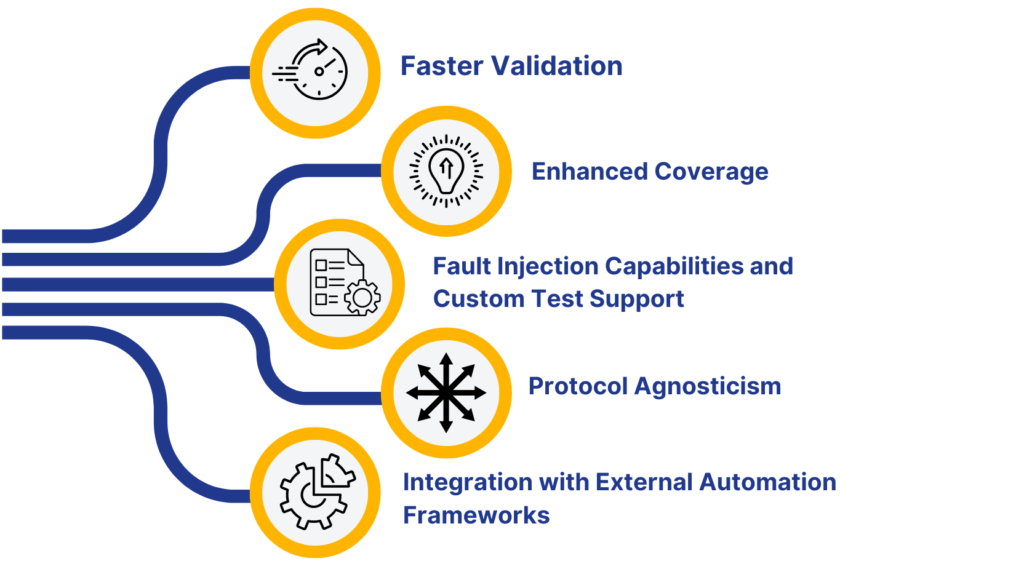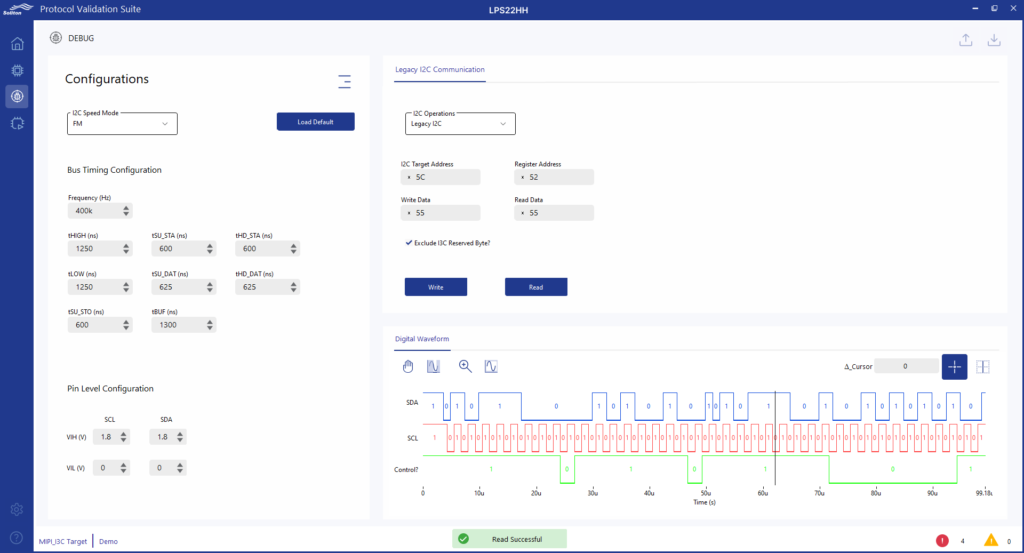In this article, discover how Soliton’s Protocol Validation Suite (PVS) for MIPI low-speed protocol validation revolutionizes protocol compliance testing, offering seamless validation with its out-of-the-box features.
Digital protocol compliance validation has long been marred by complex and time-consuming procedures. Validation engineers need to manually emulate test cases for AC characterization, design verification, parametric stress tests, fault injection, functional tests, custom device-specific tests, and many other custom tests to confirm protocol compliance. This results in significant time and effort spent navigating various tools and systems to generate compliance reports.
Additionally, performing protocol validation also requires an in-depth knowledge of specific protocols and technology stacks. These inefficiencies in conventional methods often result in prolonged release cycles, ultimately delaying time-to-market.
Therefore, the imperative for a comprehensive protocol validation tool to ensure device interoperability and compliance with digital protocol standards in a timely and efficient manner has never been more pressing.


